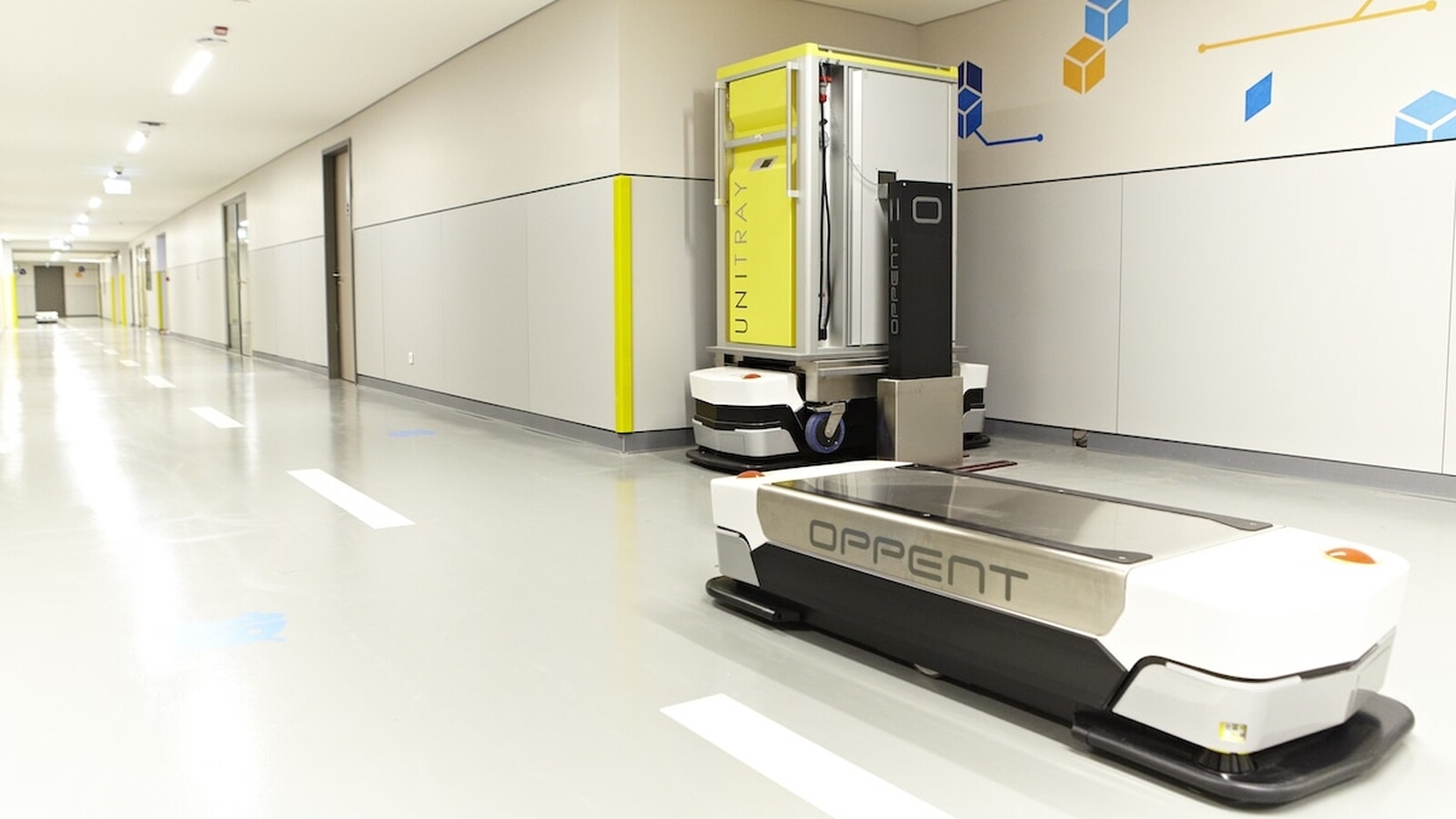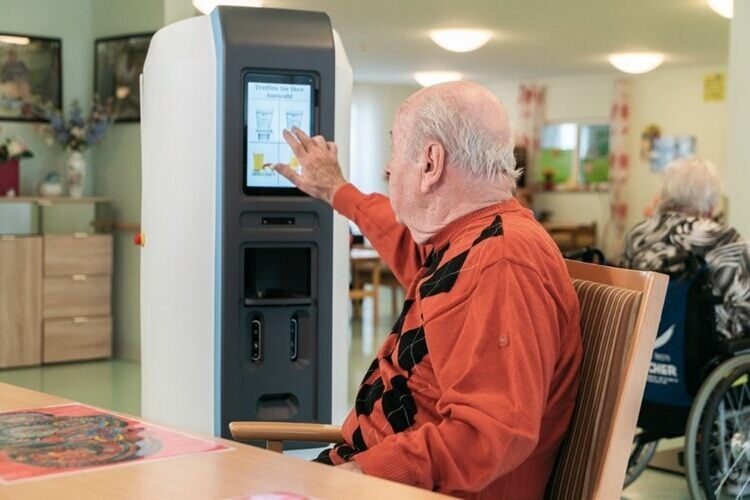
Robots give healthcare workers more time to focus on patient care
Robots in Daily Life
Sep 22, 2021 — It’s not just patients and healthcare staff that are on the move in hospitals.
EVO cart © Oppent
An 800-bed hospital may handle up to 27 tons of materials every day, covering a distance of about 800 km. Nurses spend a significant amount of time fetching and carrying medications, linen and waste, walking at least 4 miles per day according to one study. Robots can significantly reduce this, giving nurses more time to focus on patient care. Mobile robots loaded with linens and medication can find their own way around hospitals, some operating lifts and opening doors.
For example, in a hospital in Garbagnate Milanese, Italy, shown in the YouTube video, mobile robots are used to transport material – including meals and medication, personal protective equipment, and waste material – to 147 reception stations throughout the 500-bed hospital. The robots navigate autonomously using an internal map and sensors to locate their position and avoid obstacles. They also navigate to charging stations when required. More information here.
Assistance robots provide services directly to patients and care home residents
Robots are increasingly interacting directly with patients and residents in care homes, with a number of assistance robots in trials.
For example, the Lio mobile personal robot from F&P Robotics is aimed at supporting healthcare professionals in nursing, geriatric institutions and rehabilitation centres by carrying out tasks such as greeting patients, grasping and carrying objects, offering and serving drinks, clearing dishes after meal, reminding patients of, and accompanying them to, upcoming appointments and providing entertainment. The robot navigates and re-charges autonomously, has a multifunctional arm and communicates by voice as well as through a touchscreen. (see video on YouTube)

Self-service robots that allow patients or care-home residents to selects drinks or snacks from a mobile vending machine are also being trialled. For example, the SeRoDi Service Assistant, developed by Fraunhofer IPA, allows care home residents to select from a choice of 28 drinks on the robot’s touch screen. The chosen drink is then served to them by the robot. The service assistant returns to the kitchen when empty, to be restocked by the staff before being directed back to the day room via smartphone. In addition to reducing workload for staff, the robot also improves residents’ hydration through regular verbal reminders to drink.
See the IFR paper ‘A Mobile Revolution - How Mobility is Reshaping Robotics’ for more examples of how mobile robots are assisting healthcare workers


